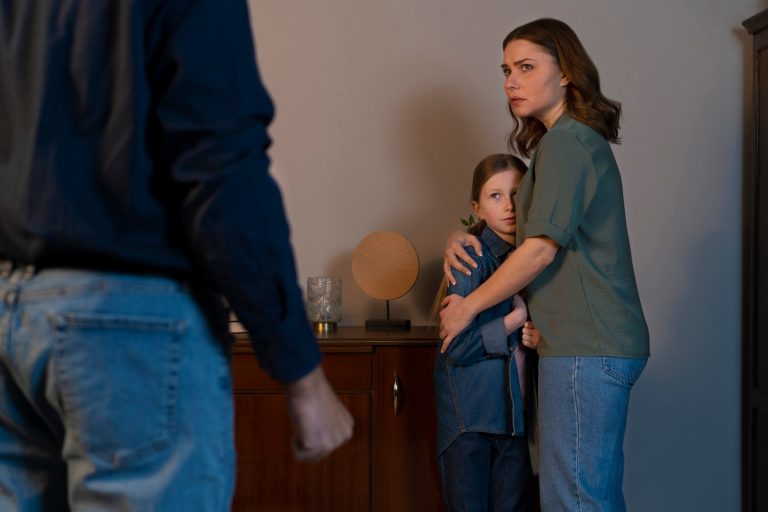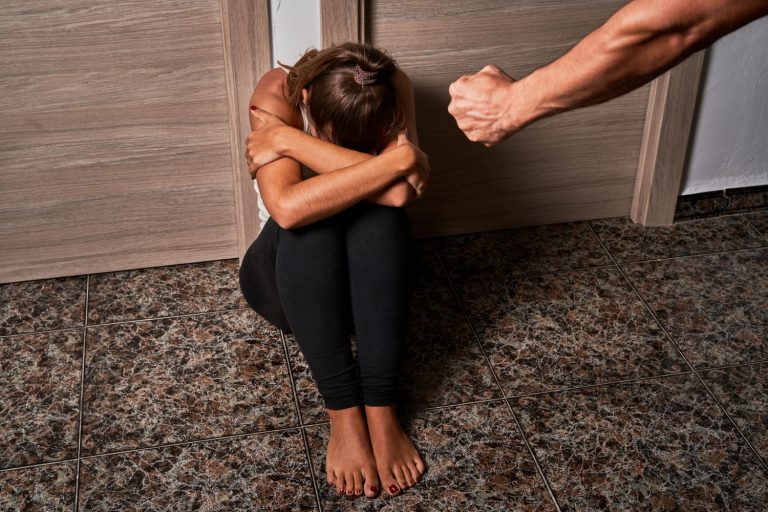As an experienced divorce lawyer at MenduniMartindill, I understand how alarming it can be to hear signs of domestic violence. You may feel powerless or unsure of how to help, but taking the right steps can truly make a difference.
I’ll guide you through what to do when you hear domestic violence, so you can offer the support that’s urgently needed. Let’s work together to ensure that every potential victim has a chance at safety and justice.
As stated in the National Domestic Violence Hotline website, call 911 if someone is in immediate danger. Do not intervene directly but offer support and resources to the victim. Confidentially report the incident to local authorities.
Recognize the Signs of Domestic Violence
Recognizing the signs of domestic violence can be a life-saving skill, empowering individuals to intervene and potentially save lives.
Domestic violence can come in different forms like physical, emotional, sexual, or financial abuse between partners or family members.
Physical signs include unexplained bruises, cuts, or broken bones. Victims might visit doctors or hospitals often, saying their injuries are accidents.
Emotional signs are less obvious but still harmful. Victims might seem scared or nervous around their partner, have low self-esteem, or be cut off from friends and family. They could also look depressed or have sudden mood changes.
Sexual abuse includes unexplained injuries in the genital or anal area, fear of intimacy, or sexually transmitted infections. To simplify, financial abuse happens when the abuser controls the victim’s money, making it hard for them to leave. Signs include limited access to bank accounts, being closely watched on their spending, or having to ask for money.
It’s important to spot these signs and help the victim. If you think someone is experiencing domestic violence, listen to them without judgment, support them, and help them get assistance from a domestic violence hotline or shelter. Remember, domestic violence is never okay, and everyone deserves to feel safe and respected.
Call for Help Immediately
In life-threatening or urgent situations, immediate calls for help can be the difference between life and death.
If there’s a medical emergency, fire, or any other dangerous situation, it’s really important to call for help right away. Dial 911 or your local emergency number for quick assistance.
When you call, make sure to give clear information about what’s happening, your location, and any details that could help. Stay on the phone and listen to the operator’s instructions.
The faster help arrives, the better things will be.Broadly speakingwaiting too long to call for help can be very serious, so don’t be afraid to ask for assistance when you need it. Stay calm and focused while speaking to emergency services, and explain how urgent the situation is.
During a crisis, it’s very important to look after your safety. Never hesitate to ask for help, as there are trained professionals ready to assist you. Act quickly to make sure you and others stay safe.
Provide a Safe Space
A safe space is an environment where individuals experience unconditional acceptance and protection.
A safe space is a place where people can freely express themselves without fear of being judged, discriminated against, or hurt. In such a space, everyone can talk openly and honestly. To make this space safe, rules and boundaries are set to ensure everyone is treated with respect. Listening and understanding each other are very important. Trust is very important too, as people need to feel sure that their thoughts and feelings are valued and respected.
Building a safe space takes time, understanding, and dedication from everyone involved. It’s a team effort to make sure everyone feels comfortable being themselves. By promoting kindness, compassion, and empathy, this space helps people feel they belong and are connected to others. It’s a place where differences are welcomed and celebrated, and where people can learn and grow together.
A safe space is important for creating a strong community, helping people grow personally, and building positive relationships.
Offer Support and Listen
During challenging times, offering support and actively listening can significantly improve emotional resilience and coping abilities.
You don’t need to have all the answers or try to fix everything. Sometimes, just being there and showing you care is enough.
Helping someone can be as easy as asking them how they are, letting them know you’re there for them, and asking if there’s anything you can do to help. It’s very important to show empathy and understanding, and not to judge or give unwanted advice.
Listening is a key part of offering support. Truly listen to what the person is saying without interrupting or trying to change the topic. To simplify, show you’re paying attention by making eye contact, nodding, and responding with care. Don’t dismiss their feelings or make their problems seem small.
Often, people just need someone to listen to them without giving solutions or advice. Being a good listener can bring comfort and make the person feel less alone. Remember, everyone deals with problems differently, so respect their feelings and let them express themselves in their own way.

Respect Privacy and Boundaries
Respecting privacy and boundaries fosters trust and strengthens relationships by ensuring others feel safe and valued.
It means not getting into someone’s personal life or sharing their private information without their say-so. It also includes recognizing and respecting their personal space and feelings. Respecting privacy and boundaries is key to building trust and good relationships. Everyone has a right to privacy and should be allowed to make their own decisions without others interfering. Open and clear communication about boundaries helps make sure they are respected.
By respecting privacy and boundaries, we show we care about others and create a safe and comfortable space for everyone. Setting and respecting limits is important for mental and emotional health, helping people feel in control of their lives. It’s a basic part of forming and keeping good relationships. This means listening, being aware of others’ needs and limits, and owning up to our actions.
Bringing it All Together
It is very important to take immediate action if you hear domestic violence. Do not ignore the situation or assume that someone else will intervene.
What MenduniMartindill is suggesting to do is, call emergency services or a domestic violence hotline for assistance. Your quick response could save someone’s life and help break the cycle of abuse.






